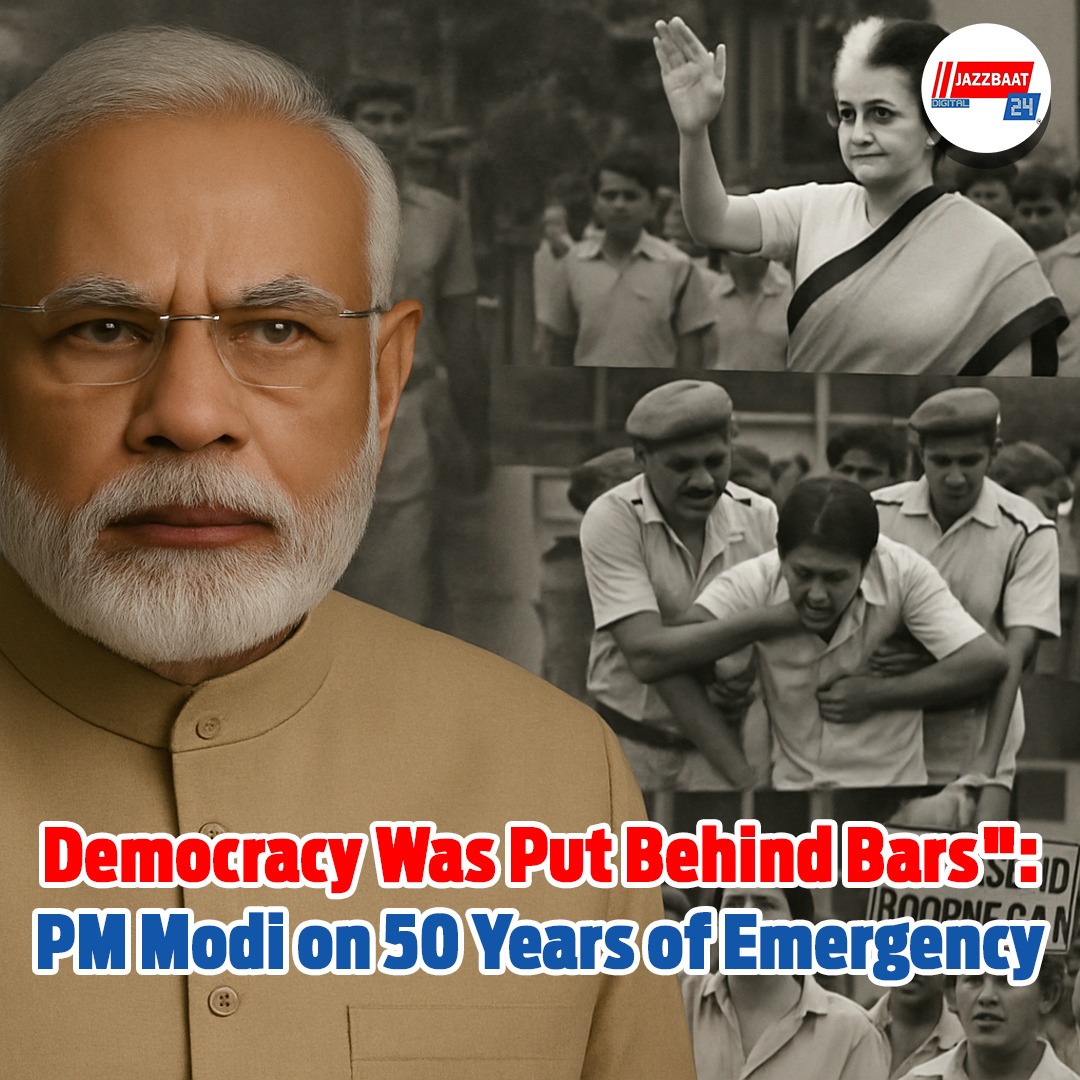
By Dipanjan Mondal
New Delhi, 25 June, 2025:
Describing it as one of the darkest chapters in India’s democratic history, Prime Minister Narendra Modi said the Congress-imposed Emergency not only betrayed the spirit of the Constitution but also put democracy behind bars.
In a series of posts on X on the 50th anniversary of the Emergency, which the Centre has decided to observe as Samvidhan Hatya Diwas, PM Modi said no Indian would ever forget how the voice of Parliament was muzzled and attempts were made to control the courts during the period.
“Today marks fifty years since one of the darkest chapters in India’s democratic history, the imposition of the Emergency. The people of India mark this day as Samvidhan Hatya Diwas. On this day, the values enshrined in the Indian Constitution were set aside, fundamental rights were suspended, press freedom was extinguished and several political leaders, social workers, students and ordinary citizens were jailed. It was as if the Congress Government in power at that time placed democracy under arrest! He described the Emergency as one of the bleakest periods in India’s democratic journey,” PM Modi said in a post on X.
“No Indian will ever forget the manner in which the spirit of our Constitution was violated, the voice of Parliament muzzled and attempts were made to control the courts. The 42nd Amendment is a prime example of their shenanigans. The poor, marginalised and downtrodden were particularly targeted, including their dignity insulted,” he added.
PM Modi further stated, “We salute every person who stood firm in the fight against the Emergency! These were the people from all over India, from all walks of life, from diverse ideologies who worked closely with each other with one aim: to protect India’s democratic fabric and to preserve the ideals for which our freedom fighters devoted their lives. It was their collective struggle that ensured that the then Congress Government had to restore democracy and call for fresh elections, which they badly lost.”
He added that the poor, marginalised and downtrodden were particularly targeted, including their dignity insulted."
"We also reiterate our commitment to strengthening the principles in our Constitution and working together to realise our vision of a Viksit Bharat. May we scale new heights of progress and fulfil the dreams of the poor and downtrodden," PM said.
He also announced a book that chronicles his experience during those years and how they shaped his journey as a leader. 'The Emergency Diaries', presented by BlueKraft Digital Foundation, relies on first-person accounts of associates who worked with him back then, and other archival material.
"'The Emergency Diaries' chronicles my journey during the Emergency years. It brought back many memories from that time. I call upon all those who remember those dark days of the Emergency or those whose families suffered during that time to share their experiences on social media. It will create awareness among the youth of the shameful time from 1975 to 1977," the Prime Minister posted on X.
"When the Emergency was imposed, I was a young RSS Pracharak. The anti-Emergency movement was a learning experience for me. It reaffirmed the vitality of preserving our democratic framework. At the same time, I got to learn so much from people across the political spectrum. I am glad that BlueKraft Digital Foundation has compiled some of those experiences in the form of a book, whose foreword has been penned by Shri HD Deve Gowda Ji, himself a stalwart of the anti-Emergency movement," he said.
On June 25, 1975, the Indira Gandhi-led government imposed a nationwide Emergency, citing threats to national security, economic instability caused by the global oil crisis, and widespread strikes that had disrupted industrial production. The declaration led to the suspension of fundamental rights guaranteed by the Constitution, including the right to seek legal redress in courts. Civil liberties were curtailed, press freedom was muzzled, and political opponents were jailed, marking a dramatic and unprecedented shift in India’s democratic framework.
The 21-month Emergency remains a defining moment in India’s political history, significantly altering its democratic trajectory. The period exposed the vulnerabilities of constitutional safeguards when faced with authoritarian tendencies. In the 1977 general elections that followed, the Indian electorate delivered a decisive verdict, voting Indira Gandhi out of power and bringing the Janata Party coalition to the forefront, a clear statement against the excesses of the Emergency and a reaffirmation of democratic values.